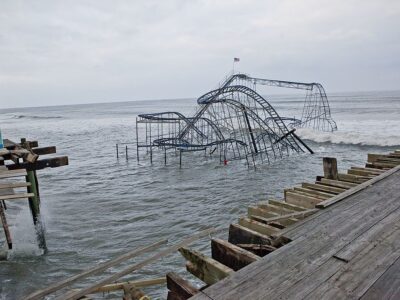
What did the storm tell us about extreme storm events and future climate in our region? What did it tell us about our vulnerabilities to future extreme events? What are the key opportunities and challenges of potential adaptation strategies?
Cynthia Rosenzweig of the NASA-Goddard Institute for Space Studies and the Earth Institute, who helped organize the panel, and William Solecki from Hunter College-CUNY will offer an overview of the challenges faced by the metropolitan region.
“This panel provides the forum we need to discuss how New York can move forward to create a vibrant and sustainable coastal city under climate change,” said Rosenzweig, who also is co-leader of the New York City Panel on Climate Change. “The impact and aftermath of Hurricane Sandy requires coastal communities in the New York Metropolitan Region to critically examine all options for enhancing resilience in this time of climate change.”
Klaus Jacob of the Lamont-Doherty Earth Observatory at Columbia University will talk about engineering approaches; Jeroen Aerts of the VU University Amsterdam will offer lessons from the Dutch; Franco Montalto of Drexel University will discuss the role of ecosystems and green infrastructure; and Rae Zimmerman of New York University will talk about planning and policy.
The event takes place today (Dec. 3) from 2-5 p.m. at Roosevelt House, Hunter College, 47-49 East 65th Street (west of Park Avenue). It is by invitation only, but you can watch it streamed live on the web here.
The panel is presented by the Roosevelt House Public Policy Institute at Hunter College and the CUNY Institute for Sustainable Cities, and co-hosted by the Urban Climate Change Research Network and the Consortium for Climate Change in the Urban Northeast.



